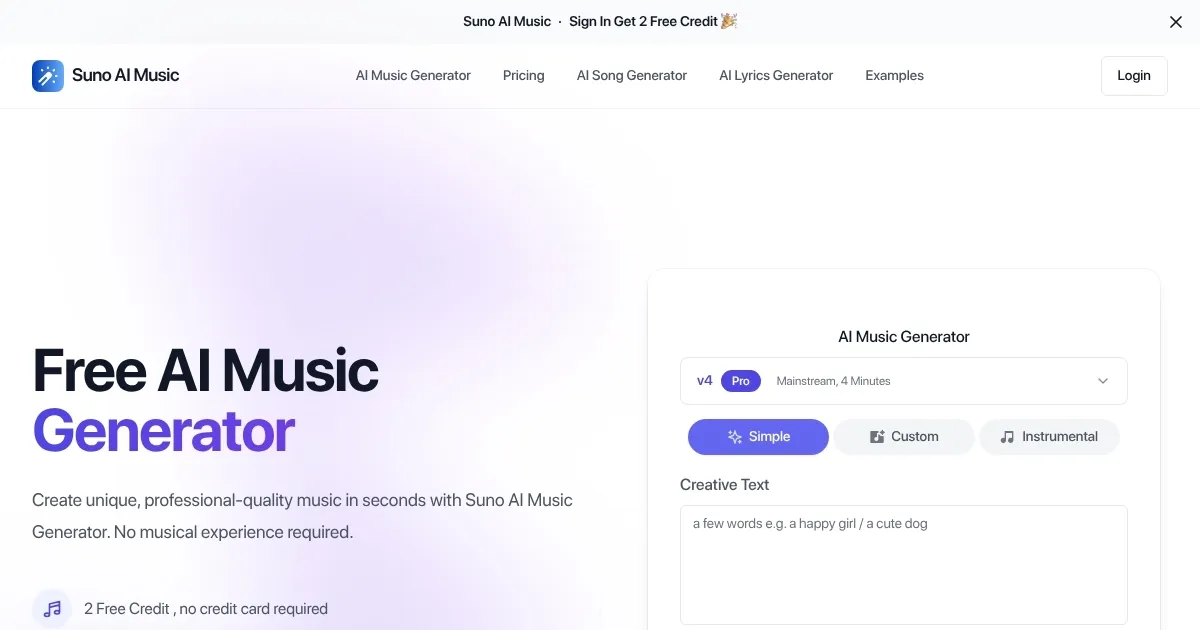Suno AI Music

Suno AI Music is a neat tool that lets anyone can craft music, no instruments or expertise required. You type a few words describing a genre, mood, or vibe — say, “upbeat electro swing with a gritty female vocal” — and within minutes, a polished track lands in your hands. It’s like having a studio producer in your browser, one that doesn’t need coffee breaks or a hefty paycheck. The platform’s simplicity is its biggest draw. A clean, intuitive interface lets you input text prompts and tweak settings, producing songs that sound startlingly professional, complete with vocals, instrumentation, or both. I think it’s safe to say this tool makes music creation feel less like a craft reserved for the elite and more like a playground for the curious.
The magic lies in Suno’s AI, specifically its v4.5+ model, which churns out high-fidelity audio at 44.1 kHz. Features like the Prompt Enhancement Helper guide users to refine vague ideas into precise musical descriptions, while the ReMi lyrics model spins creative, tailored lyrics with a few clicks. Want to blend genres? Suno handles mashups like “midwest emo with neosoul” with surprising cohesion. The Covers feature lets you reimagine existing tracks, and Personas save a song’s unique vibe for future use. It’s a robust toolkit, whether you’re a podcaster needing background music or a content creator chasing a viral hit.
But it’s not flawless. Some users on forums like Reddit note that Suno struggles with niche genres, producing tracks that can feel repetitive or lack the emotional depth of human compositions. The free tier, while generous with two daily credits, limits song length and creation volume, nudging you toward paid plans for longer tracks or commercial rights. Compared to competitors like Soundraw or AIVA, Suno’s strength is its accessibility and genre versatility, but it may not match AIVA’s orchestral finesse or Soundraw’s loop-based customization for specific projects.
What might catch you off guard is Suno’s vocal synthesis. The AI can generate human-like vocals with vibrato and nuanced phrasing, even in non-English languages, which feels like a small miracle. Yet, the platform’s legal cloud — lawsuits from the Recording Industry Association of America over copyright concerns — raises questions about its training data. Suno claims its music is copyright-free, but the controversy lingers, especially for commercial users.
For those dipping their toes into music creation, Suno is a game-changer. Start with the free tier to test its capabilities, experiment with specific prompts to unlock its full potential, and explore the gallery for inspiration. If you need music for a video or podcast, download tracks instantly and use them worry-free. Just keep an eye on your credits and consider a paid plan if you’re hooked.
What are the key features? ⭐
- Free AI Music Generator: Creates music from text prompts with no cost for limited use.
- Copyright-Free Music: All tracks are 100% copyright-free for commercial use.
- Lightning-Fast Generation: Produces professional tracks in minutes.
- Studio-Quality Sound: Delivers high-fidelity audio at 44.1 kHz.
- Multiple Music Styles: Supports over 1,200 genres, from pop to jazz.
Who is it for? 🤔
Examples of what you can use it for 💭
- Content Creator: Uses Suno to generate catchy pop tracks for YouTube video intros.
- Podcaster: Creates custom lo-fi background music to enhance podcast episodes.
- Small Business Owner: Produces upbeat electronic music for social media ad campaigns.
- Educator: Generates calming classical tracks for classroom presentation videos.
- Hobbyist Musician: Experiments with genre mashups like jazz and EDM for personal projects.
Pros & Cons ⚖️
- High-quality audio output.
- Wide range of supported genres.
- Copyright-free for commercial use.
- Free tier limits song length.
- Repetitive output in free plan.
FAQs 💬
Related tools ↙️
-
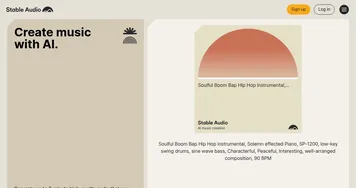 Stable Audio
An AI tool that produces high-quality music and sound using audio diffusion technology
Stable Audio
An AI tool that produces high-quality music and sound using audio diffusion technology
-
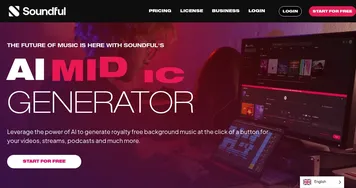 soundful
Generate royalty-free background music for your videos, streams, podcasts, etc.
soundful
Generate royalty-free background music for your videos, streams, podcasts, etc.
-
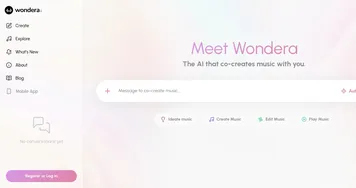 Wondera
Generates and edits music through conversational AI interactions
Wondera
Generates and edits music through conversational AI interactions
-
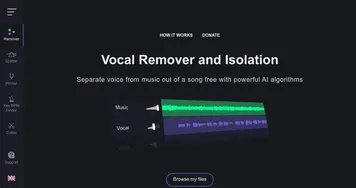 Vocal Remover
Separates vocals from instrumentals in songs using AI
Vocal Remover
Separates vocals from instrumentals in songs using AI
-
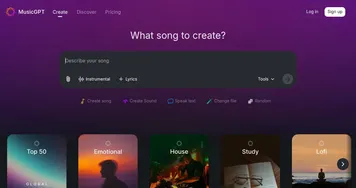 MusicGPT
Generates original music from text prompts in seconds
MusicGPT
Generates original music from text prompts in seconds
-
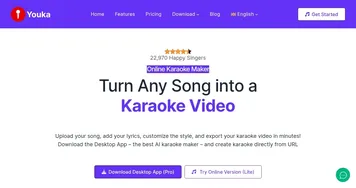 Youka
Transforms songs into karaoke videos with scrolling lyrics in minutes
Youka
Transforms songs into karaoke videos with scrolling lyrics in minutes


